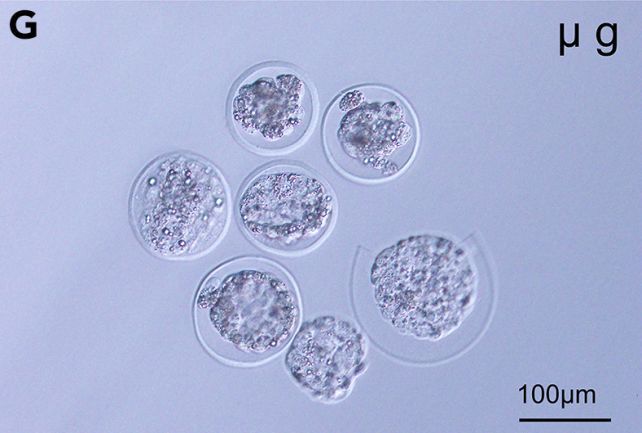Astronauts grew mouse embryos in space
- November 1, 2023
- 0
Scientists from Yamanashi University and the Japan Aerospace Exploration Agency worked to study this issue. In August 2021, they sent fertilized and frozen mouse embryos at an early
Scientists from Yamanashi University and the Japan Aerospace Exploration Agency worked to study this issue. In August 2021, they sent fertilized and frozen mouse embryos at an early

Scientists from Yamanashi University and the Japan Aerospace Exploration Agency worked to study this issue. In August 2021, they sent fertilized and frozen mouse embryos at an early stage of development (only two cells) to the ISS. Using a special device, astronauts thawed the material and grew it on the station for four days.
In addition to the main experimental cells, there were two more sets of embryos:
The survival rate on the ISS was lower than on Earth (factors other than lack of gravity may have played a role), but the embryos that survived developed normally. The experiment “clearly showed that “The absence of gravity has no significant effect” at least at this early stage of development, the article says. Scientists also said that after analyzing the cells in the laboratory on Earth, no significant changes were found in the DNA and gene status of the embryos.

Blastocysts of mice grown in microgravity / Photo: Teruhiko Wakayama
Embryos cultured in microgravity developed into blastocysts with normal cell numbers, inner cell mass, trophectoderm, and gene expression profiles similar to those cultured in artificial gravity on the International Space Station and in Earth gravity. This clearly demonstrated that gravity had no significant effect on blastocyst formation and initial differentiation of mammalian embryos.
– write researchers.
The question of whether a mammal’s fetus can develop in microgravity conditions has been asked by scientists for a long time. In 2009, a team led by Teruhiko Wakayama, who also led this experiment, found that simulated microgravity had a detrimental effect on embryo development; an egg could be fertilized in microgravity, but implantation of the fertilized egg was slightly less successful. However, real space conditions and artificial conditions in practice may differ.
Such experiments are important for future space exploration and colonization missions. Ultimately, if science proves that animals can thrive in conditions of reduced or no gravity, this will allow future astronauts and colonists on other planets to provide themselves with food.
Also, scientists are not the first to say that long space travel does not exclude the possibility of pregnancy among the mission crew, so you need to know in advance what to expect in such a situation. “We are doing research to make sure we can have children safely if the time comes.”.
Source: 24 Tv
I’m Maurice Knox, a professional news writer with a focus on science. I work for Div Bracket. My articles cover everything from the latest scientific breakthroughs to advances in technology and medicine. I have a passion for understanding the world around us and helping people stay informed about important developments in science and beyond.